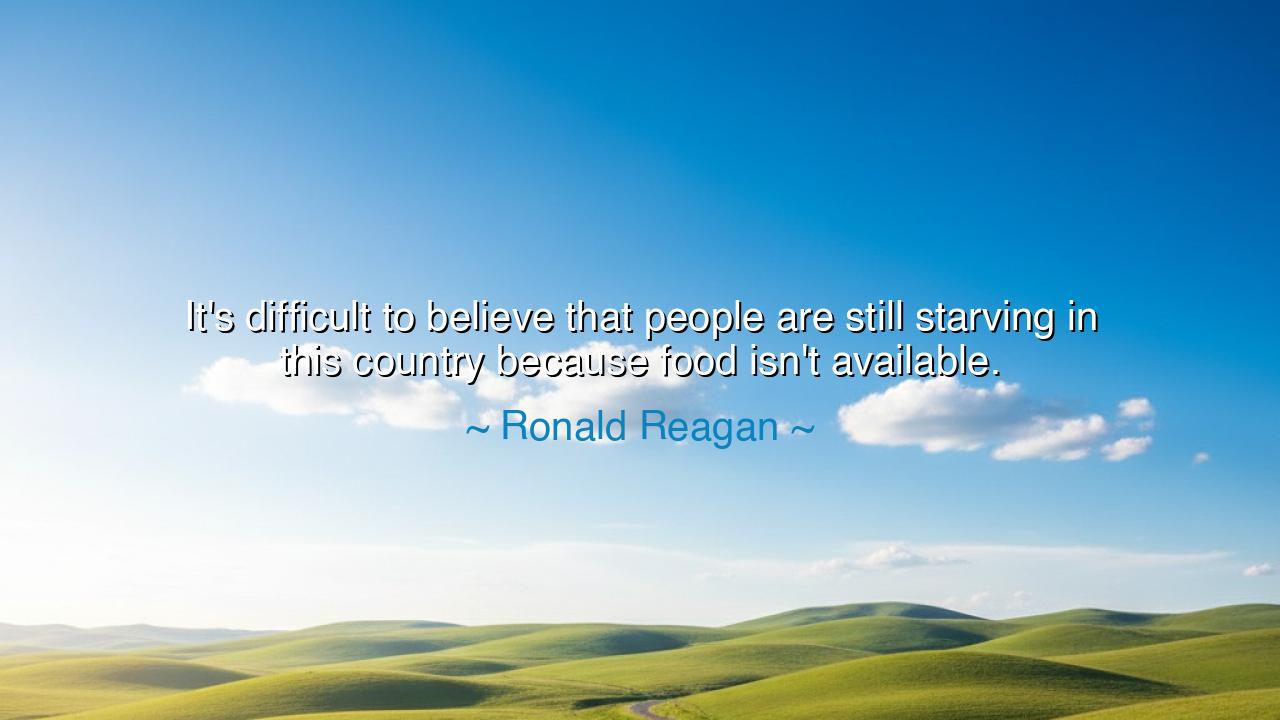
It's difficult to believe that people are still starving in this
It's difficult to believe that people are still starving in this country because food isn't available.






Yes — that quote is correctly attributed to Ronald Reagan, the 40th President of the United States. It was made during his presidency, reflecting his views on social issues and the state of the country at the time.
“It's difficult to believe that people are still starving in this country because food isn't available.”
— Ronald Reagan
Context and Background
This quote was made by Reagan in the context of discussions on poverty and hunger in the United States. Reagan, in his speeches, often expressed optimism about America’s economic success and the abundance of resources, which he believed should make basic needs, such as food, accessible to everyone. However, the remark reflects a misunderstanding or oversimplification of the causes of hunger, particularly among marginalized populations. While food availability might not have been the issue, poverty, inequality, and access were significant barriers.
This quote was often cited as an example of how Reagan, during his time in office, seemed to downplay systemic issues such as economic inequality or social safety nets in addressing hunger and poverty.
Interpretation
-
“Difficult to believe that people are still starving in this country” — Reagan expresses surprise that hunger could still be an issue in a nation of such wealth and resources.
-
“Because food isn't available” — He implies that the availability of food should solve the problem of hunger, which oversimplifies the issue by not addressing the root causes like poverty, lack of access, and economic inequality.
Summary
Ronald Reagan’s quote reflects his belief in America’s abundance and prosperity, but it also highlights a gap in understanding the complexities of poverty and hunger. While food availability might not have been the issue, the inequities in distribution, access, and socioeconomic factors were critical to understanding why hunger persisted in the United States despite its wealth. This statement has since been seen as an example of the misguided assumptions that can come from oversimplifying complex societal problems.






AAdministratorAdministrator
Welcome, honored guests. Please leave a comment, we will respond soon